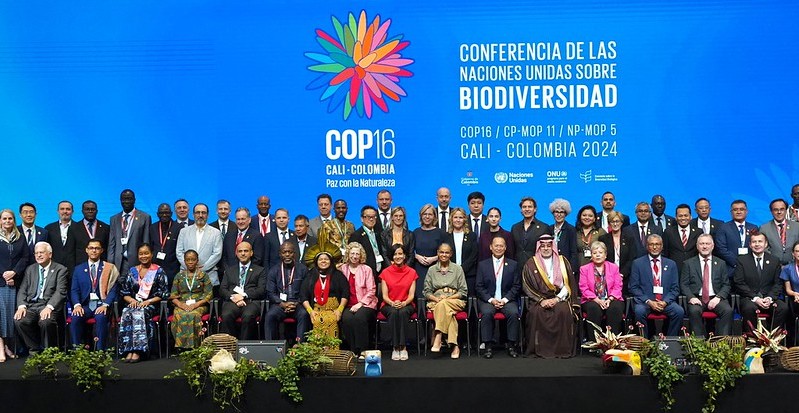
The 16th meeting of the Conference of the Parties to the Convention on Biological Diversity (COP16) on Nov. 2 adopted several important agreements regarding an expanded role for indigenous peoples and local communities in biodiversity preservation efforts. A new agreement on Article 8J of the Convention aims to enhance the place of indigenous knowledge and participation in crafting the Global Biodiversity Framework.
After two weeks of negotiations, delegates agreed to establish a “subsidiary body” under Article 8J to include indigenous peoples in future decisions on nature conservation, and oblige private corporations to share the benefits of research when tapping genetic resources under the stewardship of indigenous communities.
An indigenous leadership body will be established with two co-chairs, as indicated in the final document. These co-chairs will be elected by COP, with one nominated by UN parties and the other by indigenous representatives. The co-chairs will include at least one member from a developing nation.
The COP16 summit in Cali, Colombia, marked a continuation of efforts initiated by the 2022 Montreal Agreement, which outlined 23 measures to safeguard the planet’s biodiversity. Among these are commitments to protect 30% of the Earth’s land and 30% of threatened ecosystems by 2030. A notable measure adopted at COP16 highlights the essential contributions of peoples of African descent in environmental conservation.
Susana Muhamad, Colombia’s environment minister and president of COP16, commented: “With this decision, the value of the traditional knowledge of Indigenous peoples, Afro-descendants, and local communities is recognized, and a 26-year-old historical debt in the Convention on Biological Diversity (CBD) is settled.”
One of the summit’s most contentious issues was the ownership of nature’s genetic resources. Negotiators eventually reached a consensus that large corporations must share benefits derived from using the genetic materials of plants, animals or microorganisms in biotechnologies. This agreement includes a “genetic information fee,” set at 0.1% of companies’ revenues from products developed using these resources. The UN special rapporteur on the human right to a clean, healthy and sustainable environment, Astrid Puentes Riaño, commented on X (formerly Twitter), “This will significantly help [a] #HumanRights based approach.”
Despite these commitments, the financial pledges made over the two weeks of discussions fell short of what experts said was needed to addres the global biodiversity crisis, with only about $400 million allocated to the fund. These modest financial commitments raise concerns ahead of the forthcoming COP29 climate talks in Azerbaijan, where discussions will concentrate on securing the trillions of dollars necessary for the global shift to renewable energy sources such as solar, wind, and geothermal. Achieving this will demand substantial commitments from nations, corporations, and philanthropists. In July, 230 indigenous groups, unions, and climate and human rights organizations called on the UN Panel on Critical Energy Transition to adopt a transformative an equitable approach to the needed global transition.
From Jurist, Nov. 3. Used with permission.
See our last reports on the Global Biodiversity Framework and the Framework Convention on Climate Change.
Photo: UN Biodiversity via Flickr




